10 Comparative Points: C vs. C++ – Which Language Should You Learn? – Explore 10 key comparative points between C and C++ in this in-depth guide. Discover which language is better suited for your programming needs and career goals.
Table of Contents
Introduction And Comparative Points
In the ever-evolving world of programming, choosing the right language to learn can be a daunting task. Among the numerous languages available, C and C++ have stood the test of time, each offering unique advantages and challenges. While C is revered for its simplicity and close-to-hardware operations, C++ builds on C’s foundation, introducing object-oriented programming and other advanced features.
Whether you’re a beginner looking to start your programming journey or an experienced coder aiming to expand your skills, understanding the differences between C and C++ is crucial. In this blog, we’ll explore 10 key comparative points that will help you decide which language is better suited for your specific needs and career aspirations. By the end, you’ll have a clearer perspective on which language aligns with your goals, and how mastering one (or both) can impact your programming journey.

1. Origin and Development
C: Developed in the early 1970s by Dennis Ritchie at Bell Labs, C was designed for system programming and operating systems like UNIX.
C++: Bjarne Stroustrup developed C++ in the early 1980s as an extension of C, adding object-oriented features to enhance C’s capabilities.
2. Programming Paradigm
C: Procedural programming language, emphasizing functions and procedures for code organization.
C++: Supports both procedural and object-oriented programming, allowing for more structured and reusable code through classes and objects.
3. Complexity
C: Simpler syntax and fewer features make it easier to learn but limited in terms of advanced features like polymorphism and inheritance.
C++: More complex due to additional features like classes, inheritance, templates, and exceptions, which add flexibility but also complexity.
4. Memory Management
C: Manual memory management through functions like malloc() and free().
C++: Supports manual memory management but also introduces constructors and destructors for automatic resource management, along with smart pointers for safer memory handling.
5. Standard Template Library (STL)
C: Lacks a built-in standard library for data structures and algorithms; programmers must implement these from scratch.
C++: Includes the STL, which provides ready-to-use data structures like vectors, stacks, and queues, as well as algorithms, making coding more efficient.

6. Code Reusability
C: Code reusability is achieved through functions, which can lead to code duplication in larger projects.
C++: Promotes reusability through classes, inheritance, and polymorphism, allowing for more maintainable and modular code.
7. Use Cases
C : Ideal for low-level programming, such as operating system development, embedded systems, and hardware interfacing.
C++: Suitable for both system-level programming and higher-level applications like game development, GUI applications, and real-time simulations.
8. Performance
C: Known for its speed and efficiency, making it ideal for performance-critical applications.
C++: Slightly slower due to additional features like object-oriented programming, but can still achieve high performance with careful optimization.
9. Community and Ecosystem
C: Has a vast and mature ecosystem with extensive libraries and tools for system-level programming.
C++: Also has a large ecosystem, with additional libraries and frameworks that support both system-level and application-level programming.
10. Learning Curve
C: Easier to pick up for beginners due to its straightforward syntax and focus on fundamental programming concepts.
C++: Steeper learning curve due to its complexity and advanced features, but offers greater flexibility and power for experienced programmers.
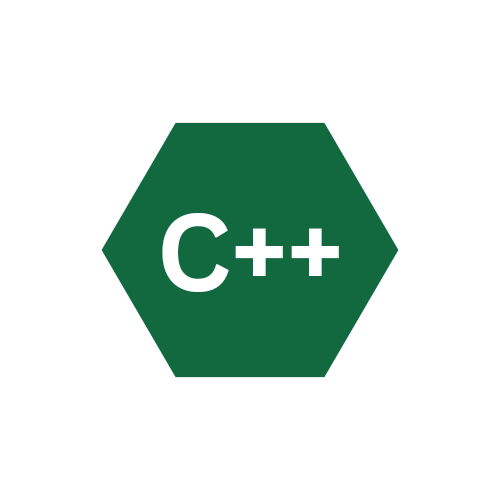
Comparison of C and C++ with some additional factors
1. Security
C: Less secure due to the absence of advanced data protection features; allows direct access to memory, leading to potential vulnerabilities like buffer overflows.
C++: Offers better security features with encapsulation through classes and the ability to control access to data using access specifiers (private, protected, public).
2. Function Overloading
C: Does not support function overloading; each function must have a unique name.
C++: Supports function overloading, allowing multiple functions with the same name but different parameter lists.
3. Function Overriding
C: Function overriding is not supported as C does not have classes or inheritance.
C++: Supports function overriding, enabling a derived class to provide a specific implementation of a function that is already defined in its base class.
4. Reference Variable
C: Does not support reference variables; uses pointers for indirect access to memory.
C++: Supports reference variables, providing a way to create aliases for variables, which simplifies certain operations like passing parameters by reference.
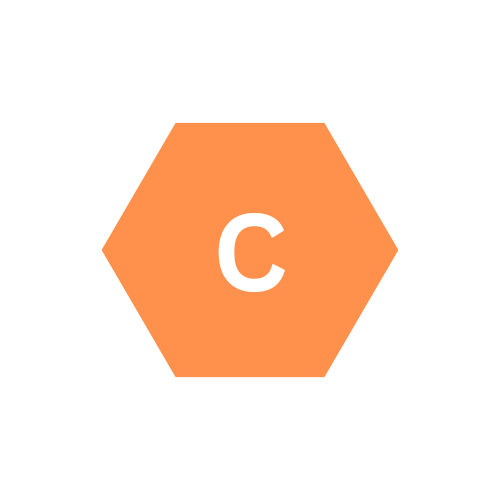
5. Keywords
C: Contains 32 keywords that provide the core functionality.
C++: Expands on C’s keywords with an additional set of keywords (around 95) to support object-oriented and other advanced programming features.
6. Namespace Features
C: Lacks the concept of namespaces; names in C are globally scoped, which can lead to naming conflicts in large projects.
C++: Introduces namespaces to avoid name conflicts, allowing better organization and modularization of code.
7. Exception Handling
C: Does not support exception handling; error handling is typically done through return values and error codes.
C++: Provides built-in support for exception handling using try, catch, and throw blocks, making error handling more robust and easier to manage.
8. Input-Output Functions
C: Uses standard I/O functions like printf() and scanf() for input and output operations.
C++: Introduces stream-based I/O, using cin, cout, and cerr, which is more type-safe and extensible compared to C’s I/O functions.
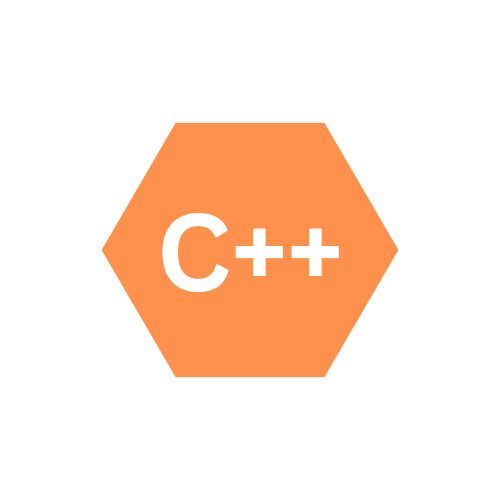
9. Inheritance
C: Does not support inheritance as it is not an object-oriented language.
C++: Supports various forms of inheritance (single, multiple, multilevel, hierarchical, and hybrid), enabling code reuse and the creation of complex data models.
10. Header Files
C: Uses header files like stdio.h, stdlib.h, and string.h to include standard libraries.
C++: Uses its own set of header files like iostream, vector, and string, while still supporting C header files, usually with a .h suffix.
Advantages and Disadvantages of C and C++
Advantages of C
1. Simplicity: C has a simple syntax that is easy to learn and understand, especially for beginners.
2. Performance: C is a highly efficient language, producing fast executables with minimal overhead, making it ideal for performance-critical applications.
3. Low-Level Access: C provides direct access to hardware resources through pointers and bitwise operations, which is essential for system programming.

4. Portability: C code can be compiled and run on a wide variety of platforms with minimal modifications, making it a portable language.
5. Rich Standard Library: C offers a rich set of built-in functions and operators that support basic operations like I/O, string handling, and memory management.
6. Wide Use in Systems Programming: C is extensively used in developing operating systems, embedded systems, and other system-level software due to its efficiency and control over hardware.
Disadvantages of C
1. Lack of Object-Oriented Features: C does not support object-oriented programming, which can make code organization and reuse more challenging.
2. No Exception Handling: C lacks built-in support for exception handling, making error management more difficult and prone to mistakes.
3. Manual Memory Management: Memory management in C is manual, increasing the risk of memory leaks and pointer-related bugs.
4. No Namespace Support: The absence of namespaces in C can lead to name conflicts in large projects, reducing code modularity.
5. No Function Overloading: C does not support function overloading, which can limit flexibility and lead to less readable code.
Advantages of C++
1. Object-Oriented Programming (OOP): C++ supports OOP principles such as inheritance, encapsulation, and polymorphism, enabling more organized, modular, and reusable code.
2. Function Overloading and Templates: C++ allows function overloading and the use of templates, providing more flexibility in writing generic and reusable functions and classes.
3. Exception Handling: C++ has built-in support for exception handling, making error detection and handling more robust and manageable.
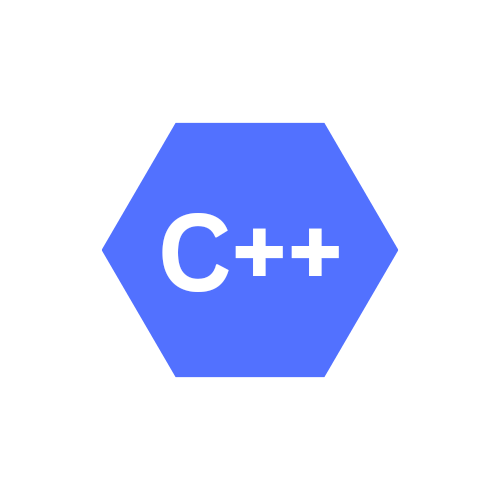
4. STL (Standard Template Library): C++ comes with the STL, a powerful library of algorithms, containers, and iterators, which speeds up development and enhances productivity.
5. Support for Both High-Level and Low-Level Programming: C++ allows developers to work at both high and low levels of abstraction, making it versatile for various types of projects.
6. Namespaces: C++ introduces namespaces, which help in avoiding name conflicts and improving code organization.
Disadvantages of C++
1. Complexity: C++ is more complex than C, with a steeper learning curve due to its extensive features, which can be overwhelming for beginners.
2. Performance Overhead: The additional features of C++, such as OOP and exception handling, can introduce some performance overhead compared to C.
3. Memory Management: Although C++ offers advanced memory management features, improper use of pointers, manual memory allocation, and deallocation can still lead to memory leaks and undefined behavior.
4. Longer Compilation Times: Due to its complex features and extensive use of templates, C++ can have longer compilation times, which can slow down development.
5. Potential for Overengineering: The flexibility of C++ can lead to overengineering, where developers might unnecessarily complicate solutions by using advanced features that are not required for the task.
Similarities between C and C++
Both are procedural programming languages.
Syntax and structure are similar, with shared keywords like `if`, `else`, `for`, `while`, and `switch`.
Both use the same basic data types (e.g., `int`, `char`, `float`, `double`).
Memory management through pointers is supported in both languages.
Both languages use functions to organize code.
File handling and standard input/output operations are similar.
Both can be compiled and executed on a wide variety of platforms.
C++ is backward compatible with most C code.
Both support preprocessor directives like `#include`, `#define`, and macros.
Use of header files to include libraries and functions is common in both languages.
Example programs for both C and C++
C Example Program: Hello World
This simple program prints “Hello, World!” to the console.

#include <stdio.h>
int main() {
printf(“Hello, World!\n”);
return 0;
}
C++ Example Program: Hello World
This C++ program also prints “Hello, World!” but uses the `cout` stream.
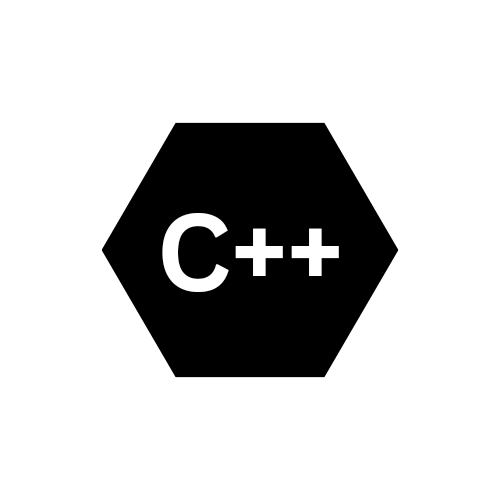
#include <iostream>
using namespace std;
int main() {
cout << “Hello, World!” << endl;
return 0;
}
Explanation
C Program: Uses the `printf` function to output text. The syntax is straightforward and procedural.
C++ Program: Uses the `cout` object and the `<<` operator to print the text. This example also introduces basic C++ syntax with `iostream` for input/output.
Conclusion
After comparing C and C++ on ten essential points, it is clear that both languages have unique strengths and cater to different types of programming needs. C, with its simplicity, efficiency, and close-to-hardware capabilities, remains a preferred choice for system-level programming, embedded systems, and situations where performance is critical. Its straightforward syntax and procedural nature make it an excellent starting point for beginners who want to understand fundamental programming concepts.
On the other hand, C++ builds on the foundations of C and introduces powerful features like object-oriented programming, exception handling, and the Standard Template Library (STL). These additions make C++ a versatile and powerful language, suitable for both system-level and application-level programming. The ability to create reusable, modular, and maintainable code with C++ makes it ideal for large-scale software development, including game development, GUI applications, and real-time simulations.
In conclusion, the choice between C and C++ depends on the specific requirements of your project and your programming goals. If you need a language that offers simplicity and speed for low-level tasks, C is the way to go. However, if you require advanced features that allow for more complex and scalable applications, C++ is the better choice. Both languages are valuable in the programming world, and mastering either (or both) can significantly enhance your skill set.
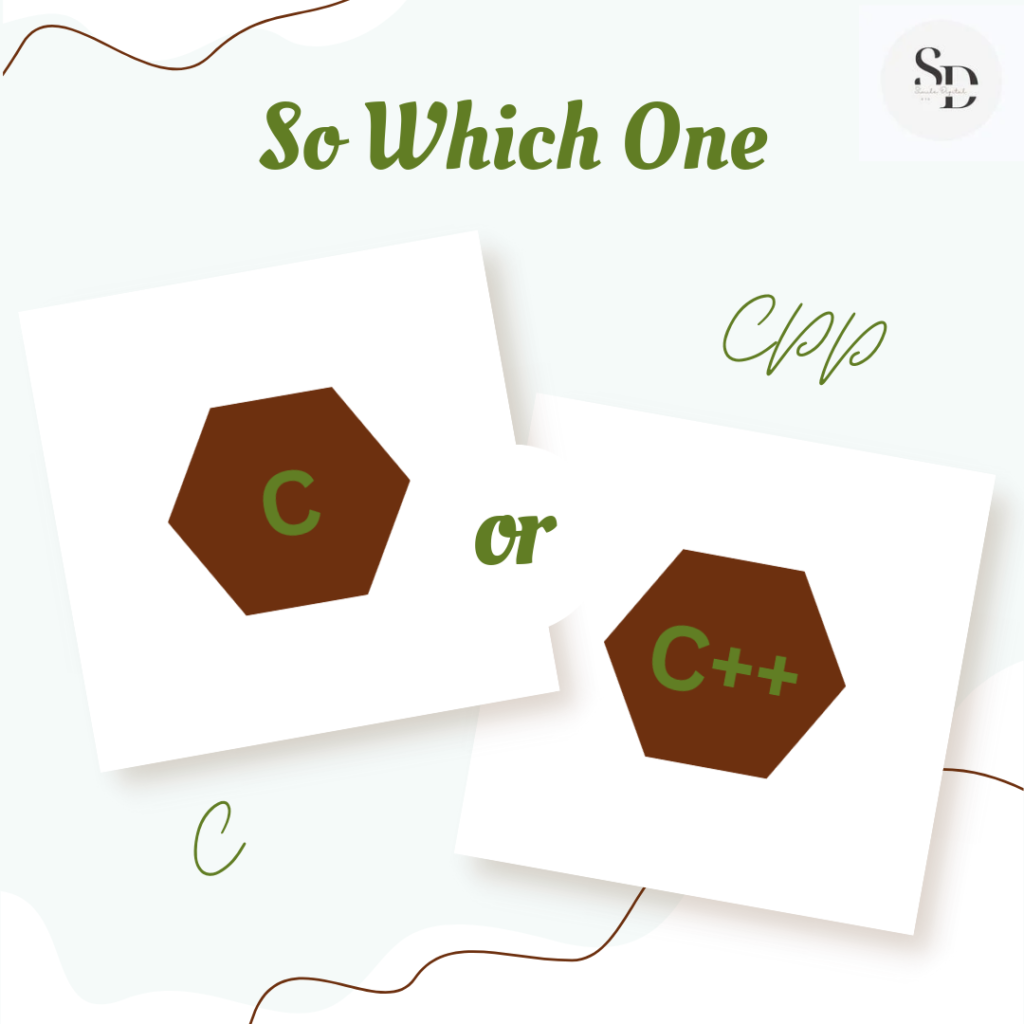
Thank You Note
Thank you for taking the time to explore this detailed comparison of C and C++. We hope this guide has provided you with valuable insights into both languages and helped you make informed decisions about which one to use for your projects. Whether you choose C, C++, or both, mastering these languages will open up a wide range of opportunities in the programming world.
For more comparisons and insights, visit our blog regularly. If you have any questions or suggestions, feel free to leave a comment or contact us directly.
Frequently Asked Questions
What is the main difference between C and C++?
Is C easier to learn than C++?
Can I use C++ features in C?
Which language should I learn first, C or C++?
Is C++ slower than C?
Can C code be compiled in a C++ compiler?
What are some common applications of C and C++?Can C code be compiled in a C++ compiler?
Disclaimer
This content is intended for educational and informational purposes only. While we strive to provide accurate and up-to-date information, programming languages and technologies evolve, and some details may change over time. We encourage you to consult official documentation and resources for the most current information. The examples provided are simplified to illustrate key concepts and may not cover all edge cases or advanced usage scenarios. Use this information at your own discretion, and always test code thoroughly before deploying it in production environments.
For more exciting topics, explore our other articles here
Green Tea vs. Black Tea: Taste, Health, and Tradition
The Fitness Face-Off: Yoga vs Gym
Coffee vs. Tea: Which Drink is Healthier?
SSC CGL vs. Bank PO: Decoding India’s Top Competitive Exams for Government Jobs
10 Comments